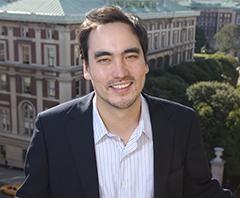A New Era
Professor Tim Wu, the Creator of the Term Net Neutrality and a Longtime Advocate of the Idea, Reflects on the FCC's Vote to Codify the Principle of an Open Internet
New York, February 26, 2015—It’s been more than a decade since Columbia Law School Professor Tim Wu coined the term “net neutrality” in a law review article arguing against allowing broadband operators to discriminate among users and content providers. Today, after years of contentious debate on both sides of the issue, the U.S. Federal Communications Commission (FCC) voted to adopt rules that will codify the Internet openness Wu helped propel into a movement.
“It is a historic day in the history of the Internet,” Wu said. “Net neutrality, long a principle, has been codified.” In addition to issuing a statement to the press, Wu took time to reflect on the evolution of Internet regulation in a special Q&A for the Columbia Law School community.
1. What lessons should law students and young lawyers take away from the rise of net neutrality?
It’s a cliché but also true that ideas can be powerful. Net neutrality was basically an idea, borrowed from the design of the Internet, that suggested the nodes of the network should be in rough equality. It has come a long way from those origins, but, at bottom, the ideas embedded in net neutrality are very powerful and ancient.
2. Was there a specific tipping point or pivotal moment in getting these new rules passed after more than a decade of debate?
President Obama’s personal involvement was an obvious tipping point. But how, precisely, did the president decide to get involved? That is a much harder question that perhaps we’ll never know the answer to. I do think the decision of many New York City tech startups to get involved made a big difference.
3. What’s the next net neutrality-type battle for the Internet? What do you see on the horizon?
The question of whether cable giant Comcast will be allowed to buy Time Warner Cable, creating a kind of mega-cable company.
4. What does the FCC’s vote today say about the evolving role of the Internet in our society?
I think it suggests that despite the fact it can be raw and unpredictable, the public continues to see the Internet as our experimental cauldron, from which new and interesting things emerge, and there was serious resistance to any closing of the Internet.
5. What does the passage of net neutrality mean to you personally?
Having worked on the issue, one way or another, for about 13 years, I suppose I’d say I’m glad it didn’t turn out to be just a vain effort. One never knows.
6. What’s next for you?
I’ve finished a draft of my new book, Your Attention Please (working title), which is all about the value and importance of human attention as a resource. It is also a sequel to my last book, The Master Switch. Trying to make that draft into something good is my work right now.
I’ve finished a draft of my new book, Your Attention Please (working title), which is all about the value and importance of human attention as a resource. It is also a sequel to my last book, The Master Switch. Trying to make that draft into something good is my work right now.
